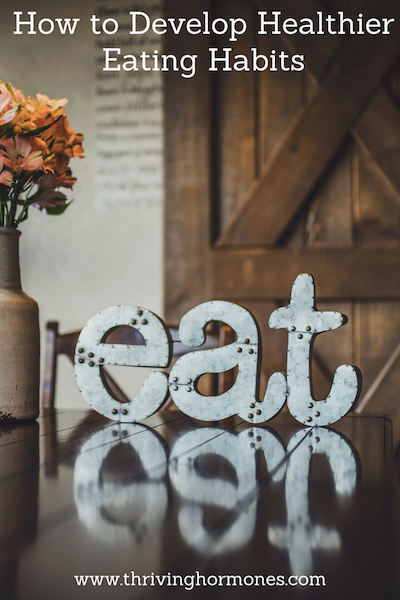How to Develop Healthier Eating Habits
Clean eating is important on every level of our life including how we feel, how our body function, keep our weight odd and more. There is so much confusing information about what to eat or not to eat and what diet is best for you. It can be confusing and it can be frustrating. The most important thing is to listen to your body!
We don’t need to deprive ourselves of great tasting food, we don’t have to go on a strict diet, staying unrealistically thin, or depriving yourself of the foods you love.
Helpful tips on how to eat in order to stay happy and healthy.
Don’t eat too many grains: any grains even the whole grains. Choose quinoa, amaranth, millet instead.
Find your balance: stop the obsession and focus on nutrients you deliver to your body
Don’t graze between meals. That can deregulate your blood sugar balance.
Simplify: Find foods you love and incorporate in your recipes and keep it simple. Try not to put too many ingredients in your dish, add more herbs instead for flavor.
Make your changes slowly and over time your eating habits change with it. Start slow and change your eating habits over time. Making the changes overnight isn’t realistic or smart. When you try to change everything at once it will usually lead to cheating or giving up on your new eating plan. Small steps are important! Start with one thing at the time, then every couple of days introduce new habit or new food.
There is no need to be perfect. The most important is the long-term of feeling good, reduced risk of disease, have more energy and be happy. Don’t make it a chore, rather something that will bring you joy.
Every meal should have balanced macronutrients and micronutrients to sustain a healthy body. Every meal should contain protein, fat, and fiber. The goal of healthy eating is to develop a lifestyle that you can maintain for life, instead of going on a diet.
It’s not what you eat; it’s how you assimilate and how you eat. Healthy eating is not only the food on your plate but also about the way you think about food. You can learn how to develop healthy eating habits.
Try to avoid eating at night. Eat dinner earlier in the day and then do intermittent fasting from 12-16 hours until breakfast the next morning. You are giving your digestive system a long break each day, which can be helpful with weight regulation and it might help to regulate weight.
It is important to eat fruits and vegetables. They are nutrients dense and essential for our body to get minerals, antioxidants, fiber, and vitamins.
Sugar causes sugar spikes and energy ups and downs, which only adds to health and weight problems. Reduce eating the amount of candy, desserts, cakes and etc. Read the labels and see how much sugar is in it. It is hidden under different names, like fructose, dextrose, maple syrup, corn syrup, molasses, sucrose, maltose, maltodextrin and more. Sugar can be hidden in loaves of bread, broths, frozen dinners, pasta sauces, ketchup and more. 4 grams of sugar equals 1 teaspoon. Most of the time you are not aware of the amount of sugar you’re consuming each day. Instead of drinking a soda, drink water with lemon. Start sweetens foods yourself have. Keep these foods handy instead of candy or cookies. Use stevia, monk fruit, hickory root powder or Yuccon syrup- they are low on the glycemic index, have fewer calories and don’t produce sugar spikes like sugar does.
Eat healthy fats. They will nourish your heart, cells, hair, skin, nails, and brain. Eat fat rich in Omeha-3, like DHE and EPA. They are helpful with mood regulation, healthy heart and prevent dementia. You can find it in: salmon, sardines, anchovies, herring marcel, walnuts, flax seeds, hemp seeds, chia seeds, and sacha inchi seeds. Monounsaturated fats you can find it in nuts and seeds, olives, olive oil as well in avocado and avocado oil. Eliminate any fats from seed oils, like: grapeseed oil, sunflower oil, safflower oil as well as corn oil. They are high in Omega-6 and produce too much inflammation in the body. Eliminate trans fats: processed food, vegetable shortenings, and margarine.
Make sure that you eat an adequate amount of protein. Good quality protein, like grass-fed, organic, pastured. They are building block for energy and growth. Adults should eat at least 0.8g of lean, high-quality protein per kilogram (2.2lb) of body weight per day.
Fiber is important for helping us stay regular. It will help you maintain weight. Eat at least 30 grams of fiber a day.
Make eating healthy a habit!
In Health,
Angie
Check out my Winter Detox! It is here! There are more tips for healthy eating in it! Click on the image!



